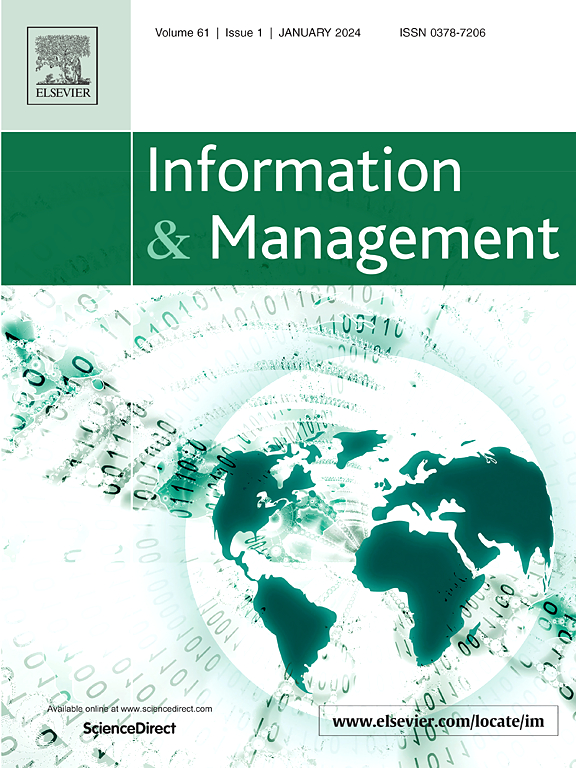从情感到反思:利用EmotionPrompt策略,通过生成式人工智能赋予决策自主权
IF 8.2
2区 管理学
Q1 COMPUTER SCIENCE, INFORMATION SYSTEMS
引用次数: 0
摘要
沟通和反思能力在管理人类与生成式人工智能(GAI)之间的战略合作中至关重要,特别是在面临决策冲突时。本研究引入了EmotionPrompt策略的两种变体,利用调节焦点理论来探讨个体对GAI能力的感知以及他们在处理分歧时对自我能力的授权。一项人类与GAI聊天机器人确定产品推广策略的实验表明,情绪提示会深刻影响个人对聊天机器人和自身表现的重新评估,培养最终决策的自决权。重要的是,具有提升导向的EmotionPrompt可以增加聊天机器人决策者的感知灵活性,促进个人自我提升和对GAI能力的信任。相反,以预防为导向的EmotionPrompt似乎限制了个体的判断和决策过程,这可以从他们反思中抑制词和焦虑情绪的增加中得到证明。这些发现为在GAI中实施特定的以监管为导向的EmotionPrompt策略以解决与人类决策中的意见冲突提供了新的视角。本文章由计算机程序翻译,如有差异,请以英文原文为准。
From emotion to reflection: leveraging EmotionPrompt strategy to empower self-determination in decision-making with generative artificial intelligence
Communication and reflection abilities are critical in managing strategic cooperation between humans and Generative Artificial Intelligence (GAI), especially when facing conflict in decision-making. This study introduces two variations of EmotionPrompt strategies, drawing on regulatory focus theory, to explore both individuals' perceptions of GAI ability and their empowerment in self-competence when handling disagreements. An experiment between humans and GAI chatbots in determining product promotion strategy showed that emotional prompts impact individuals' reappraisals of both chatbots and their own performance profoundly, cultivating self-determination in the final decision. Importantly, EmotionPrompt with promotion orientation can increase the perceived flexibility of chatbot decision-makers, facilitating individual self-enhancement and trust in GAI competence. In contrast, the prevention-oriented EmotionPrompt appears to constrain individuals' judgments and decision-making processes, as evidenced by the increased occurrence of inhibit words and anxiety emotions in their reflections. These findings provide novel perspectives on implementing specific regulatory-oriented EmotionPrompt strategies in GAI to address opinion conflicts in decision-making with humans.
求助全文
通过发布文献求助,成功后即可免费获取论文全文。
去求助
来源期刊

Information & Management
工程技术-计算机:信息系统
CiteScore
17.90
自引率
6.10%
发文量
123
审稿时长
1 months
期刊介绍:
Information & Management is a publication that caters to researchers in the field of information systems as well as managers, professionals, administrators, and senior executives involved in designing, implementing, and managing Information Systems Applications.
 求助内容:
求助内容: 应助结果提醒方式:
应助结果提醒方式:


